A Fond Farewell to the Brood X Invasion.
In the spring of 2021, everyone lucky/cursed enough to live east of Illinois, south of New York and north of Georgia, enjoyed/barfed up over one of the “Seven Insect Wonders of the World”: the emergence of the 17-year periodical cicadas. These insects swarm out into the sunshine in the spring of their 17th year to engage in a wild bacchanal of deafening music and sex, uncannily similar to the ritual we humans know as Spring Break.
Why? Well, one cicada– who prefers to be identified as “Harold” (not its real name)– says “Pretty much everything above ground eats us– birds, raccoons, mice, toddlers, lizards, dogs, you name it. So we just hide underground long enough that predators forget all about us, or even better, die. Then we all come out at once in such numbers that there are too many of us to eat, and we sing and mate like crazy.”
Periodical cicadas occur nowhere else in the world, and we here in America should celebrate our unique entomological heritage with the kind of “HELL, YEAH!” patriotic enthusiasm that both impresses and alarms our international friends.
Coming out periodically, suddenly, and in impossible-to-consume quantities is a survival strategy called “satiation” and also explains why there are fruitcakes.
Entomologist Michael Raupp, who has eaten plenty of cicadas himself (he says they taste like crickets), adds that the bugs number in the trillions and don’t even try to defend themselves, so the entire region becomes a literal all-you-can-eat smörgåsbug. “Many creatures, including your dogs and some humans, relish the opportunity to dine on cicada snacks.”
Those that survive have only a couple of weeks to find a mate– again, uncannily similar to Spring Break.
And, as we discovered firsthand this spring, periodical cicadas don’t mate quietly. After all, they have have been waiting all alone, underground, for 17 years. And now that they have the chance, the males produce an exuberant, ear-splitting sound somewhere between a power saw and fire truck siren. Thousands of them gather in trees in enormous aggregations that entomologists call “chorusing centers,” where males impress females with their mating calls, produced by sound-making structures called timbals on their nearly hollow abdomens.
Periodical cicada broods (there are 17 of them, Brood X being the largest) actually consist of seven different species of cicada, three of which are in Brood X: Magicicada septendecim, M. cassini and M. septendecula. Recently, it’s been discovered that M. cassini cicadas synchronize their songs and, upon completing a verse, all rise into the air and change perches in a kind of aerial ballet. It’s as if they’re constantly rearranging until they find their ideal mate.
Another fun fact: periodical cicadas, which include 13-year as well as 17-year cicadas, happen in the eastern US and nowhere else in the world! And while the rest of the world may view this with relief, we here in America should celebrate our unique entomological heritage with the kind of “HELL, YEAH!” patriotic enthusiasm that both impresses and alarms our international friends. If you want to learn more about these freedom bugs, including when and where the next broods will emerge, and a cookbook with an assortment of tasty/nauseating recipes, check out the resources below.
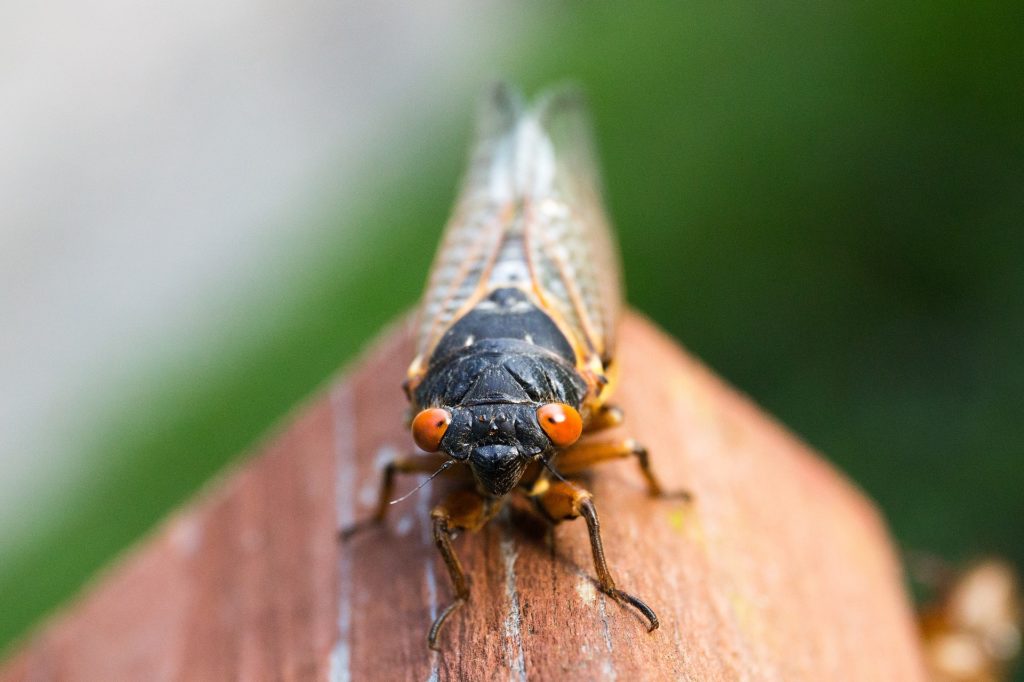
More Cicada Information
Check out Cicada Mania to learn everything there is to know about both periodical and annual cicadas:
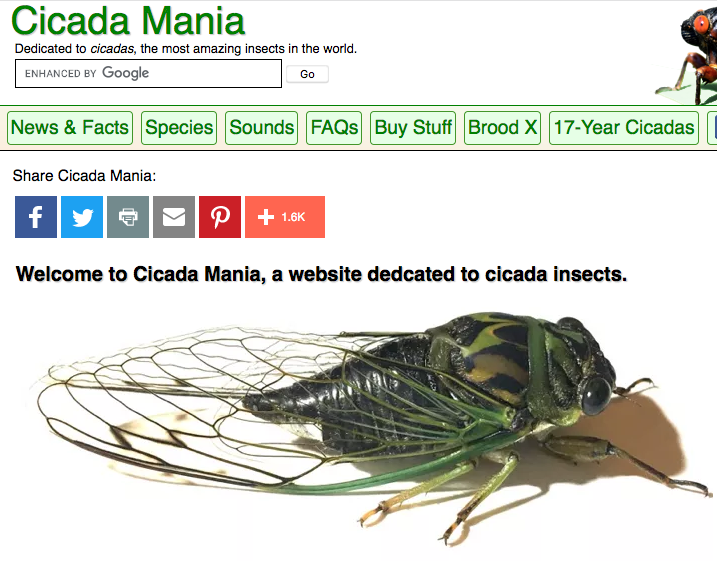
And don’t miss their YouTube channel:
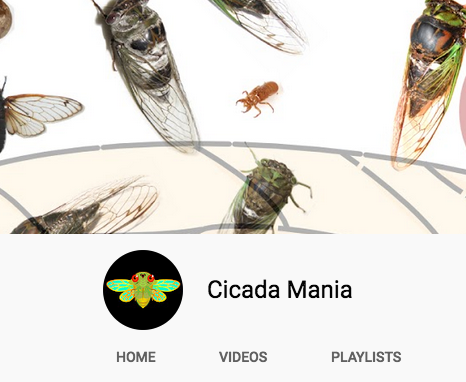
Cicada Resources for Teachers
If you’re an educator, this is a very teachable moment! Check out these cicada educator resources at Science NetLinks!

Cicada Note for Gardeners
If you’re a gardening enthusiast and live in periodical cicada territory, you should wait until after an emergence to plant shrubs and trees, because overly enthusiastic female cicadas may lay so many eggs in the stems that they damage young woody plants. If you’ve already got some prized new shrubs and trees, you may want to cover them in protective netting for the couple of weeks when the cicadas are active. Please don’t spray them with insecticide– cicadas and the many other mostly beneficial insects in your yard are already finding it hard enough to survive in the 21st Century.
Cicada Brood X News
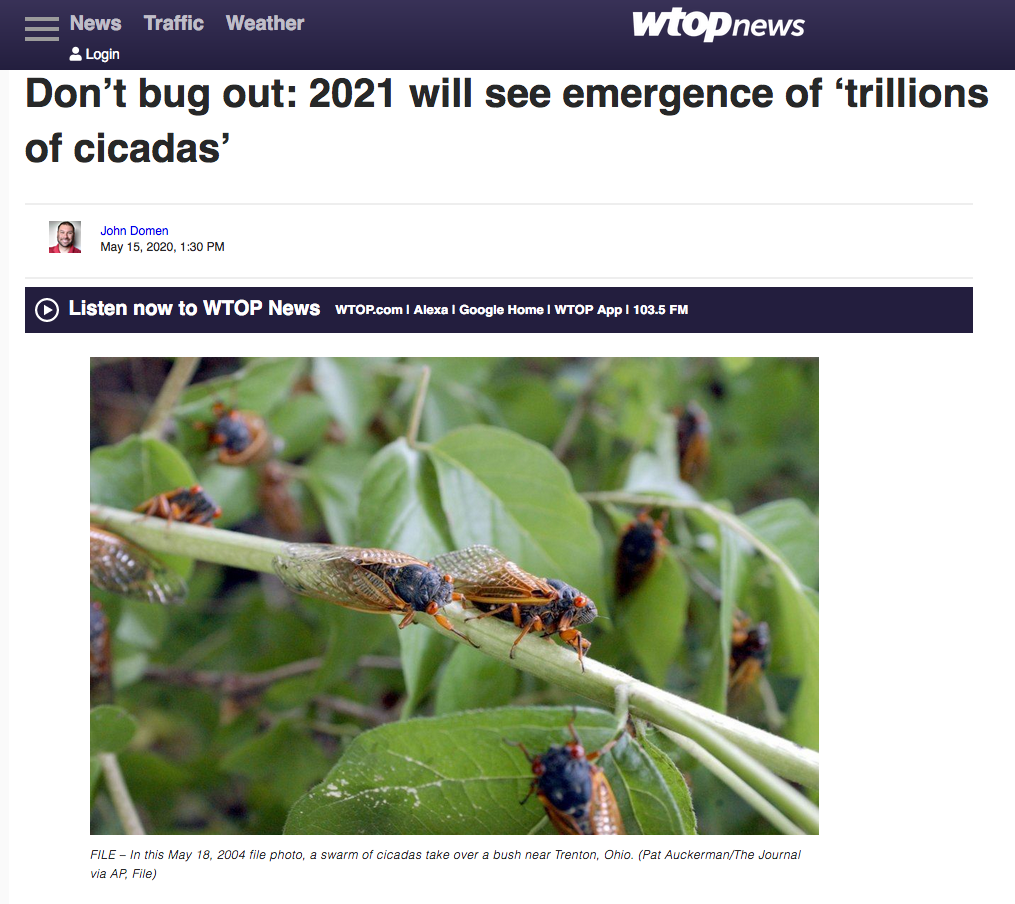
Download the Cicada Safari app, record observations, and help researchers learn about these amazing insects.



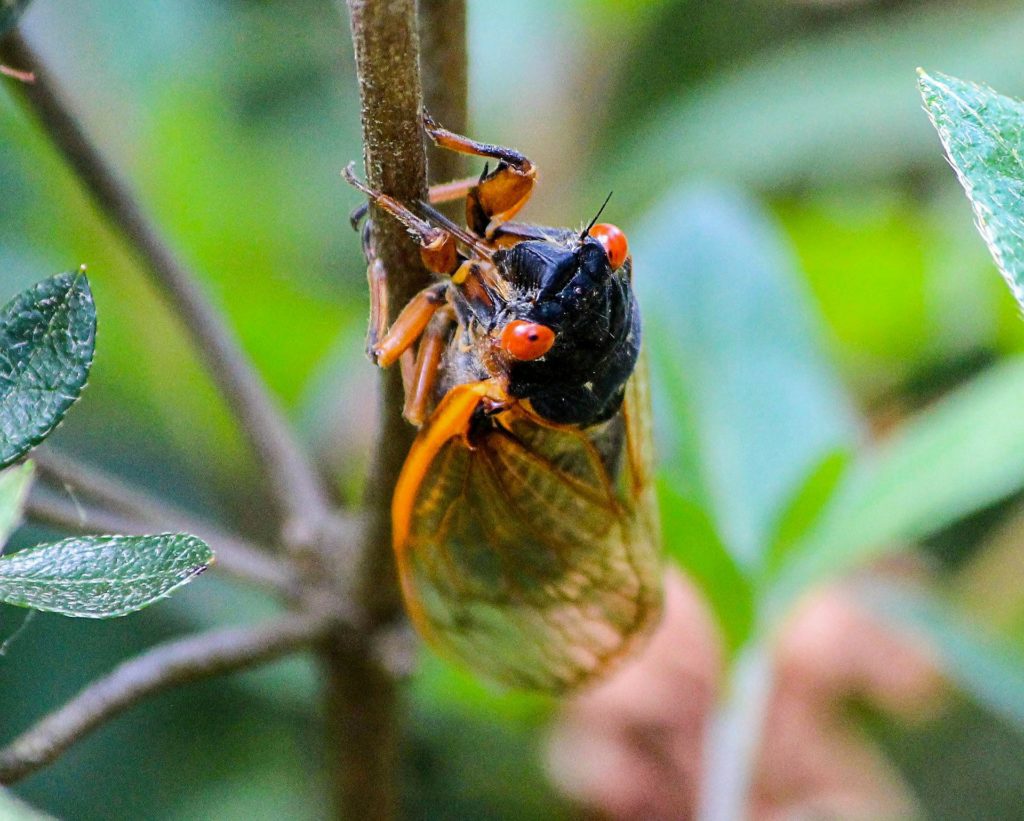
 Curse of the Mummy
Curse of the Mummy